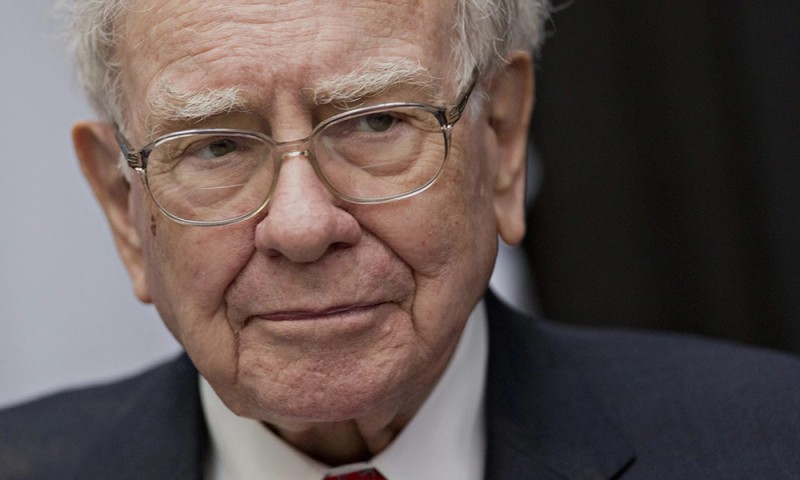
卡夫亨氏(Kraft Heinz)——这家由沃伦·巴菲特(Warren Buffett)与巴西私募股权公司3G资本(3G Capital)于2015年联手打造的包装食品巨头,正式宣布将进行分拆。周二这一消息的发布,为巴菲特那笔备受瞩目且惨痛至极的投资画上了句号:当年这场承诺将带来效率提升与行业主导地位的并购案,最终反而导致公司市值蒸发约570亿美元(跌幅达60%)。
消息公布后,卡夫亨氏股价下跌7%。巴菲特旗下伯克希尔-哈撒韦公司(Berkshire Hathaway)仍持有其27.5%的股份,他毫不掩饰自己的感受。
“将两家公司合并显然并非明智之举,但在我看来,分拆也无法解决问题。”他向美国消费者新闻与商业频道表示,并补充称自己对这一决定“深感失望”。
一分为二的分拆计划
该公司宣布,将于2026年底前完成分拆,形成两家上市企业:
• 全球风味提升公司(Global Taste Elevation Co.):专注于经典亨氏产品,包括调味酱、涂抹酱、调味品(亨氏番茄酱、卡夫奶酪通心粉、费城奶油奶酪等均在其列)。
• 北美杂货公司(North American Grocery Co.):涵盖多个标志性日常食品品牌,如奥斯卡·梅耶(Oscar Mayer)、卡夫切片奶酪(Kraft Singles)、麦斯威尔咖啡(Maxwell House)以及方便午餐盒(Lunchables)。现任首席执行官卡洛斯·艾布拉姆斯-里维(Carlos Abrams-Rivera)将执掌该公司,与此同时,董事会正为全球风味提升公司物色新负责人。
公司执行主席傅玫凯(Miguel Patricio)表示,推动分拆旨在优化资本配置,并在营销层面聚焦战略重点。
他向《华尔街日报》表示:“我们会为每个品牌匹配适配的关注度与资源,充分释放其潜力。”
在经历十年业绩低迷之后,公司决定进行分拆。自2015年卡夫与亨氏合并以来,公司市值已蒸发逾570亿美元,资产减记规模达150亿美元,同时还因消费者转向非加工食品而多次遭受市场抛售的冲击。
巴菲特对这一投资失误向来坦诚。2019年,他承认伯克希尔“为卡夫支付了过高溢价”。此后,这位“奥马哈先知”对该持股计提数十亿美元资产减值,而3G资本则悄然退出,使得伯克希尔成为持股比例最高、损失最为惨重的股东。
分拆能否扭转局面?
此次分拆给投资者带来更棘手的问题:倘若消费者正抛弃那些未能契合当下健康标准的“传统”食品杂货品牌,那么分拆后的独立品牌又如何能在相同的业务领域表现更好呢?
分析师、雅虎财经(Yahoo Finance)执行主编布莱恩·索齐(Brian Sozzi)在领英发文指出:“加大营销支持力度绝非包治百病的灵丹妙药。”
TD Cowen的罗伯特·莫斯科(Robert Moskow)向《华尔街日报》指出,食品巨头常高估规模效益带来的影响。“食品企业发现,它们在食品杂货店内的广泛影响力未必能带来预期优势。”他如是说。
换言之,对卡夫亨氏进行分拆,或许能解决部分因官僚主义而导致的效率低下问题,但无法改变消费者对热狗或方便午餐盒类加工食品需求持续萎缩的事实。对巴菲特而言,此次分拆为其罕见的投资失误画上了象征性的句点。当“奥马哈先知”准备年底将伯克希尔的管理权移交给格雷格·阿贝尔(Greg Abel)时,卡夫亨氏将成为警示案例:即便是最具标志性的品牌,也难以抵御消费者口味变化带来的冲击。(*)
译者:中慧言-王芳
卡夫亨氏(Kraft Heinz)——这家由沃伦·巴菲特(Warren Buffett)与巴西私募股权公司3G资本(3G Capital)于2015年联手打造的包装食品巨头,正式宣布将进行分拆。周二这一消息的发布,为巴菲特那笔备受瞩目且惨痛至极的投资画上了句号:当年这场承诺将带来效率提升与行业主导地位的并购案,最终反而导致公司市值蒸发约570亿美元(跌幅达60%)。
消息公布后,卡夫亨氏股价下跌7%。巴菲特旗下伯克希尔-哈撒韦公司(Berkshire Hathaway)仍持有其27.5%的股份,他毫不掩饰自己的感受。
“将两家公司合并显然并非明智之举,但在我看来,分拆也无法解决问题。”他向美国消费者新闻与商业频道表示,并补充称自己对这一决定“深感失望”。
一分为二的分拆计划
该公司宣布,将于2026年底前完成分拆,形成两家上市企业:
• 全球风味提升公司(Global Taste Elevation Co.):专注于经典亨氏产品,包括调味酱、涂抹酱、调味品(亨氏番茄酱、卡夫奶酪通心粉、费城奶油奶酪等均在其列)。
• 北美杂货公司(North American Grocery Co.):涵盖多个标志性日常食品品牌,如奥斯卡·梅耶(Oscar Mayer)、卡夫切片奶酪(Kraft Singles)、麦斯威尔咖啡(Maxwell House)以及方便午餐盒(Lunchables)。现任首席执行官卡洛斯·艾布拉姆斯-里维(Carlos Abrams-Rivera)将执掌该公司,与此同时,董事会正为全球风味提升公司物色新负责人。
公司执行主席傅玫凯(Miguel Patricio)表示,推动分拆旨在优化资本配置,并在营销层面聚焦战略重点。
他向《华尔街日报》表示:“我们会为每个品牌匹配适配的关注度与资源,充分释放其潜力。”
在经历十年业绩低迷之后,公司决定进行分拆。自2015年卡夫与亨氏合并以来,公司市值已蒸发逾570亿美元,资产减记规模达150亿美元,同时还因消费者转向非加工食品而多次遭受市场抛售的冲击。
巴菲特对这一投资失误向来坦诚。2019年,他承认伯克希尔“为卡夫支付了过高溢价”。此后,这位“奥马哈先知”对该持股计提数十亿美元资产减值,而3G资本则悄然退出,使得伯克希尔成为持股比例最高、损失最为惨重的股东。
分拆能否扭转局面?
此次分拆给投资者带来更棘手的问题:倘若消费者正抛弃那些未能契合当下健康标准的“传统”食品杂货品牌,那么分拆后的独立品牌又如何能在相同的业务领域表现更好呢?
分析师、雅虎财经(Yahoo Finance)执行主编布莱恩·索齐(Brian Sozzi)在领英发文指出:“加大营销支持力度绝非包治百病的灵丹妙药。”
TD Cowen的罗伯特·莫斯科(Robert Moskow)向《华尔街日报》指出,食品巨头常高估规模效益带来的影响。“食品企业发现,它们在食品杂货店内的广泛影响力未必能带来预期优势。”他如是说。
换言之,对卡夫亨氏进行分拆,或许能解决部分因官僚主义而导致的效率低下问题,但无法改变消费者对热狗或方便午餐盒类加工食品需求持续萎缩的事实。对巴菲特而言,此次分拆为其罕见的投资失误画上了象征性的句点。当“奥马哈先知”准备年底将伯克希尔的管理权移交给格雷格·阿贝尔(Greg Abel)时,卡夫亨氏将成为警示案例:即便是最具标志性的品牌,也难以抵御消费者口味变化带来的冲击。(*)
译者:中慧言-王芳
Kraft Heinz, the packaged-food giant created in 2015 by Warren Buffett and Brazilian private equity firm 3G Capital, is officially breaking up. The Tuesday announcement ends one of Buffett’s highest-profile bets—and one of his most painful—as the merger that once promised efficiency and dominance instead wiped out roughly $57 billion, or 60%, in market value.
Shares slid 7% after the announcement, and Buffett, whose Berkshire Hathaway still owns a 27.5% stake, was blunt about his feelings.
“It certainly didn’t turn out to be a brilliant idea to put them together, but I don’t think taking them apart will fix it,” he told CNBC, adding he was “disappointed” by the decision.
A split in two
The company announced that it will divide into two publicly traded businesses by late 2026:
• Global Taste Elevation Co. will be focused on classic Heinz items, such as sauces, spreads, and condiments, Heinz ketchup, Kraft Mac & Cheese, and Philadelphia cream cheese among them.
• North American Grocery Co. will be home to iconic staples like Oscar Mayer, Kraft Singles, Maxwell House, and Lunchables. Current CEO Carlos Abrams-Rivera will lead this unit, while the board searches for a new leader for Global Taste Elevation.
Executive chair Miguel Patricio launched the move as a way to simplify capital allocation and sharpen strategic focus on a marketing level.
“We can allocate the right level of attention and resources to unlock the potential of each brand,” he told the Wall Street Journal.
The separation comes after a decade of underperformance. Since Kraft and Heinz merged in 2015, the stock has lost more than $57 billion in market capitalization, been battered by $15 billion in write-downs, and weathered waves of consumer rejection as shoppers turn away from processed staples.
Buffett has been candid about the misstep. In 2019, he admitted Berkshire had “overpaid for Kraft.” Since then, the Oracle of Omaha has written down billions on the stake, while 3G Capital quietly headed for the exit, leaving Berkshire as the mostly exposed, and bruised, shareholder.
Will a split help?
The separation poses a tougher problem for investors: If consumers are fleeing “old” grocery brands that haven’t adapted to the health and wellness standards of today, why should separate brands fare better in the same silos?
“More marketing support isn’t some form of magic elixir,” analyst and Yahoo Finance executive editor Brian Sozzi wrote on LinkedIn about the deal.
TD Cowen’s Robert Moskow argued to the Journal that food conglomerates often overestimate the benefits of size. “Food companies have found that their breadth of influence in the grocery store does not necessarily yield the advantages they expected,” he said.
In other words, breaking Kraft Heinz into two units may clear up some bureaucratic inefficiencies, but it doesn’t change the fact that there’s simply less customer demand for hot dogs or processed foods like Lunchables. For Buffett, the split is a symbolic closing chapter on a rare investing miscalculation. As the Oracle of Omaha prepares to hand over the reins to Greg Abel at year’s end, Kraft Heinz will stand as a cautionary tale: Even the most iconic brands can’t outrun shifting consumer tastes.

